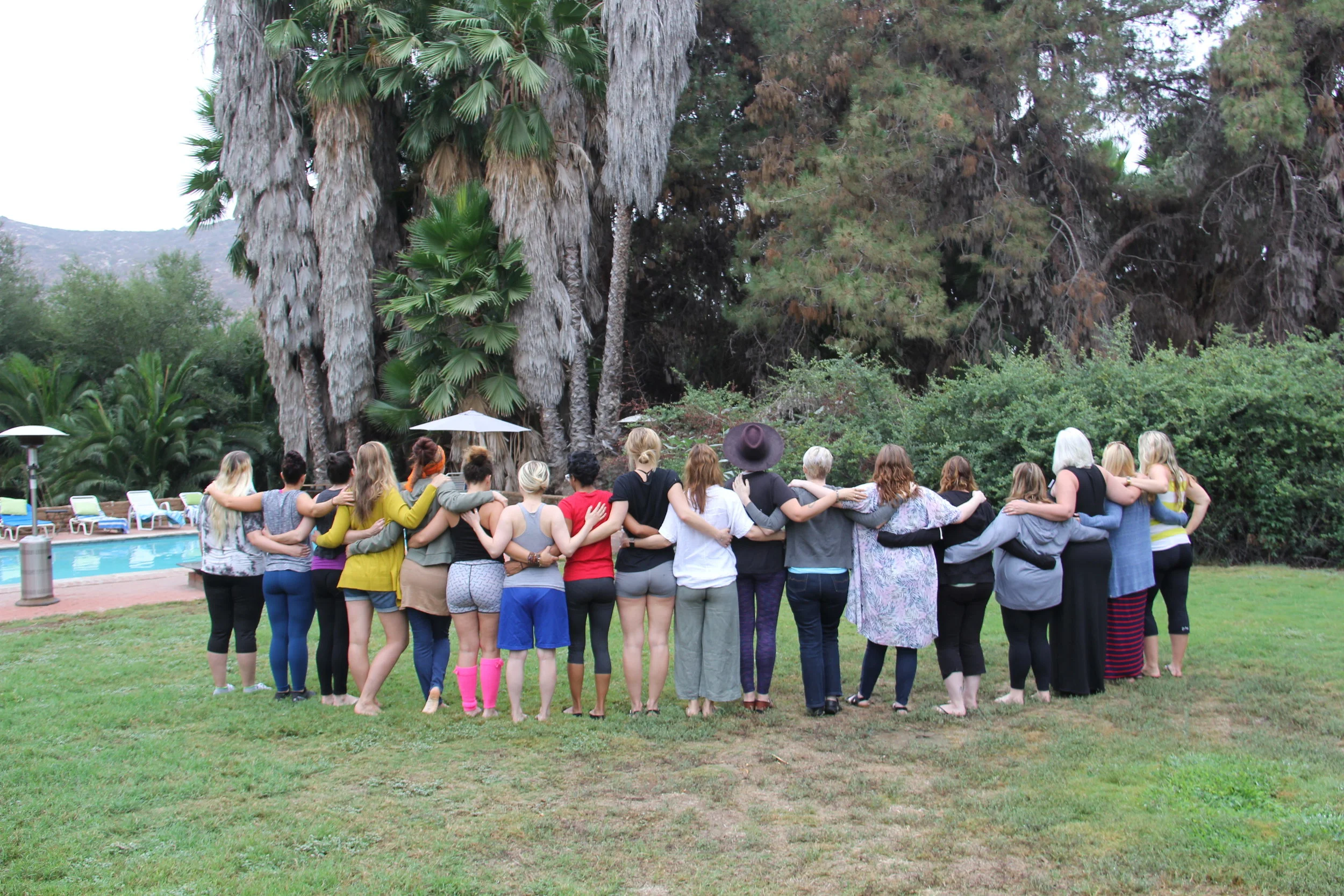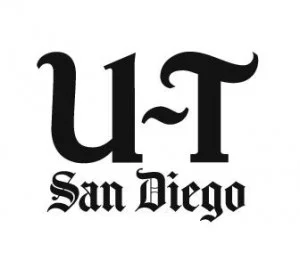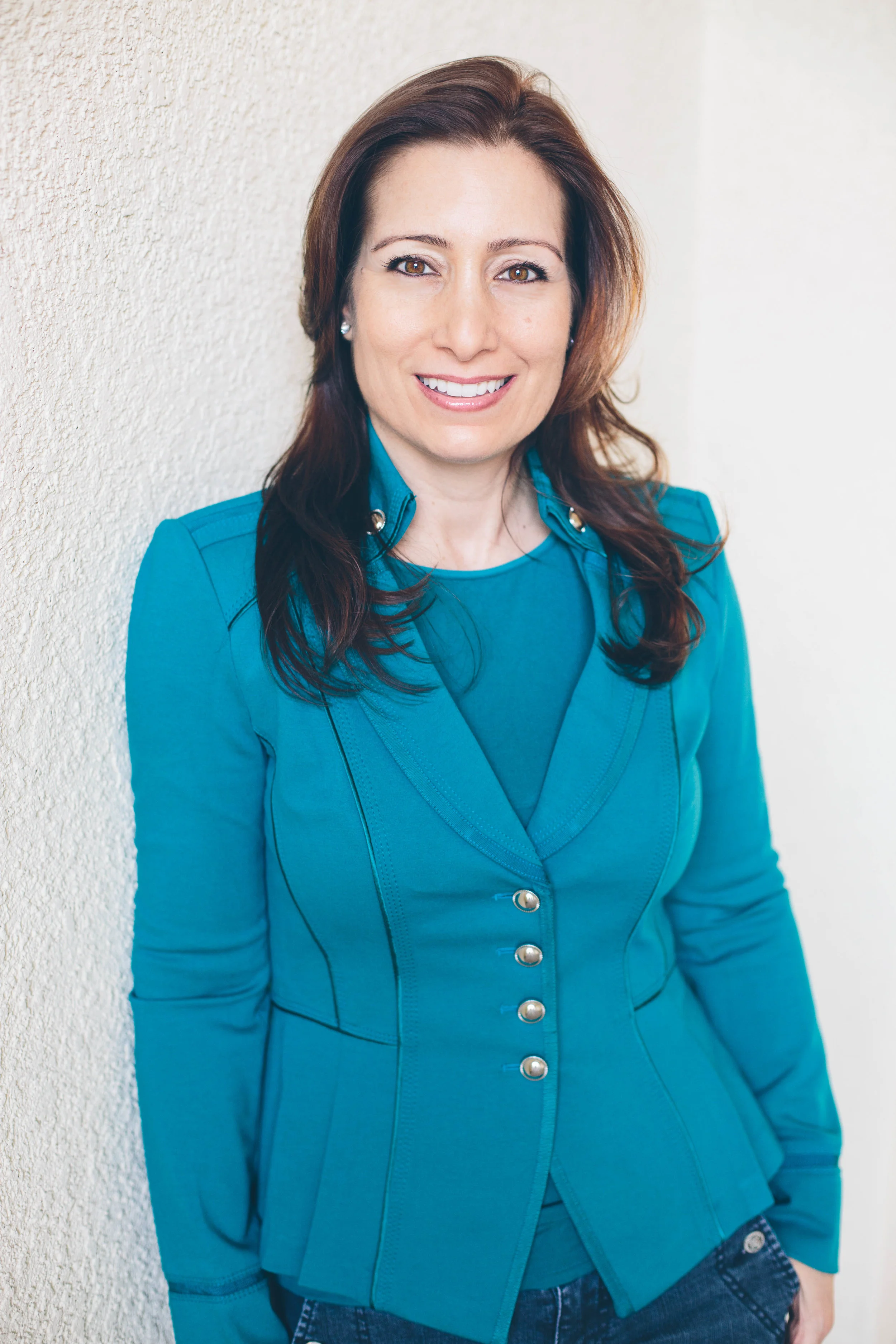SD Voyager Link: http://sdvoyager.com/interview/life-work-brittany-catton-kirk/
Today we’d like to introduce you to Brittany Catton Kirk.
Brittany, can you briefly walk us through your story – how you started and how you got to where you are today.
I was raped overseas in 2012 and it nearly destroyed me. I gained 60 pounds in less than a year, isolated myself from family and friends, struggled at work and in my relationships. I looked for a safe place to go and heal from my PTSD but could not find anything. Traditional outlets like rehab cost about a thousand dollars a day, are COED and designed for substance abuse, not PTSD.
I knew I wanted to use my ten years experience with nonprofit events from the Armed Services YMCA to bring survivors together to learn, grow and heal in a serene environment, but I also knew I had to work on my own healing first. So, after five years of intensive therapy, medication and with the support of my service dog Magnus and partner Brian, I launched an interest list on my “Alive Day” (the anniversary of the attack which can be a difficult day for trauma survivors) which empowered me to take back that day and make it into something positive for others. After a single post on my personal Facebook page, I had 40 survivors from all over the country who signed up overnight. I got to work organizing 40 volunteers and supporters to launch the first Sunlight Retreat in January 2018.
I developed Sunlight Retreats as a social enterprise as a new model of healing for survivors of rape. Sunlight is unique in that it is an accelerator for healing, where many proven services are available for survivors to sample and experiment within an intensive 3-4 day retreat. In a peaceful, beautiful setting, it allows survivors to be removed from the pressures of family and work and enables them to focus exclusively on their own healing with others who understand. Sunlight Retreats educates survivors on the science of trauma and how to grow beyond trauma, with interactive workshops with sexual trauma psychologist Dr. Shiva Ghaed. This education helps survivors understand their reactions are often normal and how to counteract them in a healthy manner. Survivors can experience programs like acupuncture, restorative yoga, healthy cooking, kickboxing, service animals and NET Therapy to see what works best for them. These services are free of charge and organized for them by volunteers, which greatly reduces financial stress to those overwhelmed by depression, anxiety, and PTSD. Before the retreat, Survivors were suffering in silence and dropping out of school, the military, and not functioning well in their careers, relationships and as parents without anyone understanding the source of the problem. Survey results and testimonials from the 40 individuals to date who have participated in the Sunlight Retreats confirm the absolute need and value of this program. Nearly a dozen survivors who have attended the “Team 1” and “Team 2” Sunlight Retreat plan to return to welcome and mentor “Team 3.” After the retreat, the healing and support continue in the private online support group to support one another and plan meetups.
Often survivors are too traumatized and struggling to function after their attack to research and arrange multiple appointments and few realize what recovery from sexual assault looks like in appointments alone. Overwhelming appointments can include six months of STD testing, police reporting, which includes multiple sessions and interviews, a traumatic Sexual Assault Response Team evidentiary medical exam, potentially years of weekly therapy and monthly appointments with a psychiatrist to adjust medications. It is a lot for a healthy person to handle, let alone someone in shock and suffering from PTSD. It can make survivors feel overwhelmed to even start the healing journey, especially if they have families or careers to try to keep afloat. Sunlight Retreats is a change making, scalable program that gives survivors a better way to jumpstart healing so that they can take back their power and empower others.
We’re always bombarded by how great it is to pursue your passion, etc. – but we’ve spoken with enough people to know that it’s not always easy. Overall, would you say things have been easy for you?
As with any new venture or challenge, it is never a smooth road. Like trauma and grief, there are ups and downs as you move forward. I struggled to find legal and mental health volunteers to launch Sunlight Retreats, but after receiving many “Nos”, I finally got a “Yes”, and got the help I needed. It also led me to Dr. Shiva Ghaed, who is the perfect fit. It is OK to say no to things and also receive nos to your requests because ultimately it connects you to the right people. As a woman, it important to remind myself that rejection and failure are an important part of building resilience and fortitude.
Work/life balance is also a constant challenge, even though the retreat is four days, it takes about 6 months of planning and thirty hours a week of coordination, with 60+ survivors, 40+ volunteers, the venue and trauma volunteers. There is also insurance, liability, CA red tape to navigate. Don’t worry about timing, because honestly there will never be a perfect time to start. For the first retreat, I was working and raising our toddler Cal while my military spouse was geo-bachelor in DC after a deployment to Iraq. For the second retreat, I was seven months pregnant. There is always something! I asked for help, delegated and started small with only 15 survivors, with little advertising. I slowly have grown retreats from 15 to 25 to 60, but I want to make sure I can keep intimacy and quality of the retreats before growing too fast.
So, as you know, we’re impressed with Sunlight Retreats for Survivors of Rape – tell our readers more, for example, what you’re most proud of and what sets you apart from others.
At the end of each Sunlight Retreat, survivors take an anonymous survey. 100% of survivors have reported via an anonymous survey that the retreat benefitted their healing. 100% of survivors would recommend Sunlight Retreats to a fellow survivor, and 100% felt stronger after the Sunlight Retreat. Success stories include a Human Trafficking Survivor who went back to her nonprofit work in the Bay Area. Aly, who was featured in a San Diego Union-Tribune article (7/5/18) on Sunlight Retreats reported, “I think without the retreat, I would have felt alone, like, forever. To be surrounded by people who get it, that helped me get it. I feel like I can actually move on with my life. I have never felt the same since that retreat.” Aly left a domestic violence situation, found her dream job as a flight attendant and got back to working out and volunteering after the retreat. Another grateful participant is a nurse who had been in intensive therapy and out on medical disability for PTSD who returned to work and testified that she learned more in one weekend at Sunlight Retreats more than five years of therapy to the San Diego Union-Tribune in a separate article (3/4/19). There are some beautiful poems, works of art, and testimonials that survivors have shared on www.sunlightretreats.org about how much Sunlight Retreats has changed their lives, impacted their healing and allowed them to return to work, their children and relationships with healthier coping tools and support.
I created Sunlight Retreats with a data-driven approach and have collected data from survivors and keeps stats on everything to build a case to support survivors. After my attack in 2012, I launched an anonymous online survey for survivors in order to better understand the real-world issues facing survivors, and not just the clinical diagnosis. To date, since 2013, 181 Survivors have taken the Sunlight Survey. Out of 181 responses, 122 survivors had thoughts of suicide, 48 had attempted suicide, 139 suffered from PTSD, 156 suffered from depression, 161 suffered anxiety, 81 suffered from substance abuse, 116 gained or lost weight, 144 suffered alienation from loved ones, 130 had nightmares, 127 had traumatic memory recall, and 126 feared for their safety.
The majority of survivors (73.5 percent) reported these symptoms to be ongoing, meaning what resources were available, were not working. Another key finding shed light on the isolation of rape, with survivors struggling to share their rape with their support network. Only 55% told a friend, 41.4% shared their rape with a counselor, only 18% shared with their doctor, 11.6% shared in group therapy, 6% told a rehab facility, while 33% of survivors told no one about the rape. These statistics proved that many survivors struggled without a network of support and built the groundwork for Sunlight Retreats.
What advice would you give to someone at the start of her career?
If you are thinking about starting a social enterprise, nonprofit or socially conscious business, there are so many resources available to you in San Diego. I am currently in the cohort of City Sail through Mission Edge, which is a free Social Business Accelerator and Impact Lab through the City of San Diego. I will be starting my Masters in Social Innovation at USD in the fall to help grow and scale Sunlight Retreats and they have this world renown Global Social Innovation Challenge that is open to all university student entrepreneurs worldwide. There is also SCORE, San Diego Workforce Partnership and the San Diego Foundation which have free workshops and programs for young entrepreneurs. If you are military-connected, there are also amazing remote programs for starting a small business through the Institute for Veterans and Families that I took advantage of, including my PMP certification, Veteran Edge, and V-Wise for entrepreneurship training. There is enough free resources out there that you shouldn’t have to spend much money to get started which really helps with the stress of launching a startup.
If you are holding an idea close to the vest, try sharing it with select friends that you trust that would encourage you and help you problem solve. I did that with Sunlight Retreats with my entrepreneur friends Heather Pierce and Dave Willson when I could barely share my idea without crying. For me, in the early stages, it is very important to protect your ideas from naysayers or people that want to take your idea in a different direction. It is also helpful to remember research and conduct ongoing interviews with partners in the field and potential clients for design thinking to make sure you are truly innovating for your customer versus creating what you think they want.
Contact Info:








